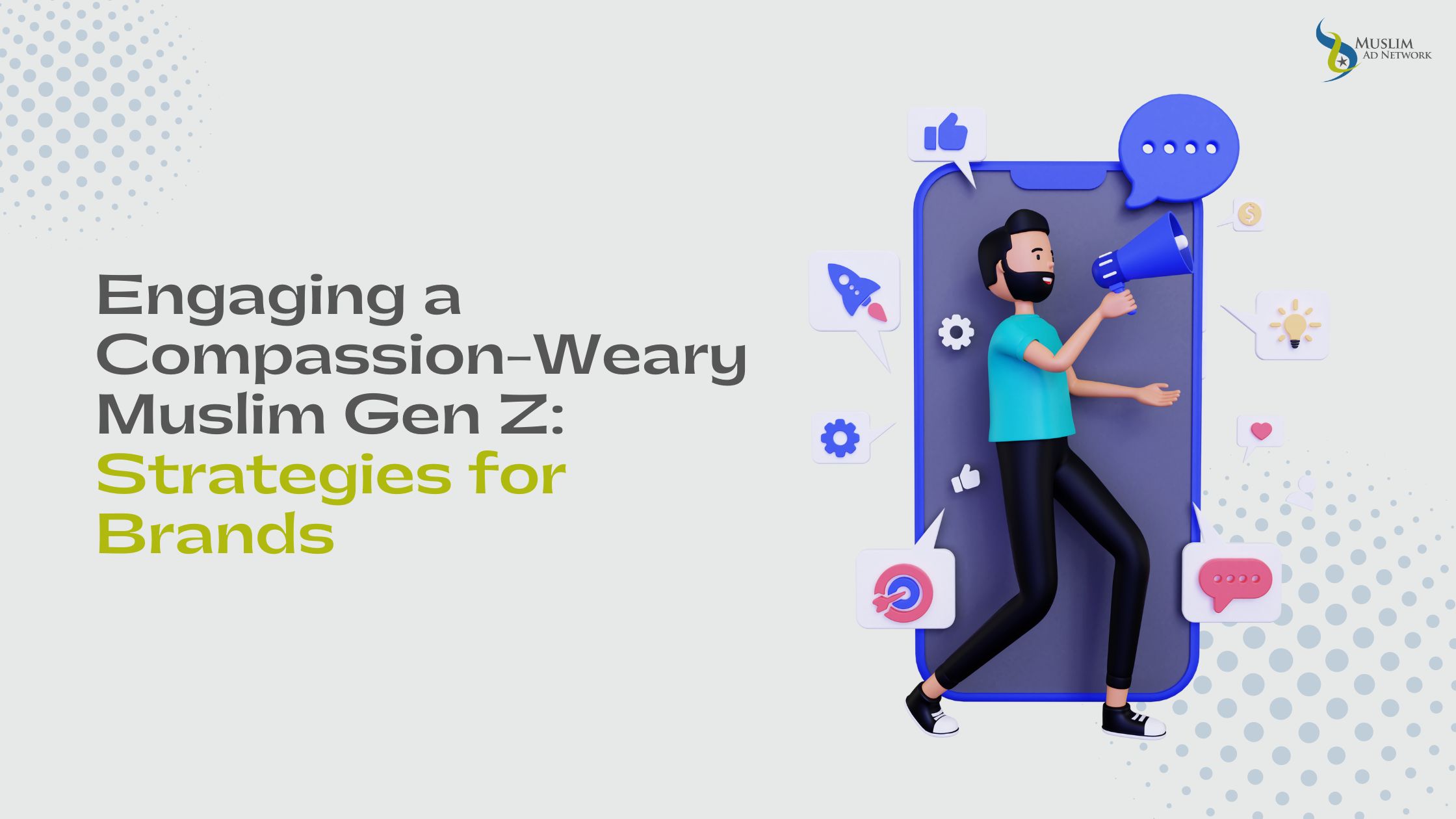
Understanding Compassion Fatigue Among Muslim Gen Z
Generation Z, particularly within the Muslim community, is navigating a complex world where constant digital engagement and global awareness are both empowering and overwhelming. This generation is frequently exposed to a relentless stream of socio-political issues, humanitarian crises, and environmental challenges, leading to what is commonly known as “compassion fatigue.” This phenomenon is characterized by emotional exhaustion and a reduced capacity to empathize, stemming from repeated exposure to distressing events.
For Muslim Gen Z, who are deeply connected to their faith and the global ummah (community), this can be particularly taxing. Their strong sense of justice and responsibility towards their fellow humans can make them more susceptible to the effects of compassion fatigue. A study highlighted that over 60% of Muslim travelers were Millennials or Gen Z, underscoring their global mindset and the importance of understanding their unique needs and challenges (Mastercard).
The Role of Digital Media in Compassion Fatigue
Digital media plays a central role in the lives of Gen Z, serving as both a source of information and a platform for social activism. However, the constant exposure to negative news, social injustices, and global crises through social media can lead to a sense of helplessness and burnout. A report by McKinsey highlights that Gen Z is the least optimistic about their future compared to other generations, with lower levels of emotional and social well-being (McKinsey & Company).
For Muslim Gen Z, who often engage with content related to global issues affecting Muslim communities—such as conflicts, humanitarian crises, and discrimination—the impact of digital media can be even more pronounced. The pressure to stay informed and active on social issues, combined with the overwhelming nature of the content, can lead to disengagement as a coping mechanism.
The Impact on Brand Engagement
Brands aiming to connect with Muslim Gen Z consumers face the challenge of engaging an audience that is both deeply concerned with social issues and increasingly desensitized due to compassion fatigue. Traditional marketing strategies that rely on emotional appeals or shock value may no longer resonate with this demographic. Instead, brands need to adopt a more nuanced approach that aligns with the ethical and spiritual values of Muslim Gen Z.
The travel habits of Muslim Gen Z are particularly telling of their broader values. Their interest in exploring different cultures and their preference for ethical and halal-certified products during their travels provide insights into their expectations from brands. They value authenticity, cultural sensitivity, and social responsibility, whether at home or abroad. For instance, a brand that supports eco-friendly travel or offers halal-certified products in various global locations is more likely to appeal to this audience.
Strategies for Brands to Connect with Muslim Gen Z
- Emphasize Authenticity and Transparency: Muslim Gen Z consumers are highly discerning and skeptical of performative activism. Brands must ensure that their social responsibility efforts are genuine and transparent. This could include clear communication about the sourcing of halal products, transparent supply chains, and real commitments to sustainability and ethical practices. For example, a fashion brand might highlight its use of ethically sourced materials and provide transparency about its labor practices.
- Support Mental Health Initiatives: With the rise of compassion fatigue, there is a growing need for mental health support within the Muslim community. Brands can contribute by funding or partnering with organizations that focus on mental health awareness and support, particularly within an Islamic context. This not only addresses a critical need but also positions the brand as a supporter of holistic well-being, which resonates with Muslim values of taking care of the body and soul.
- Create Value-Driven Content: Instead of overwhelming Muslim Gen Z with distressing news or heavy-handed messaging, brands should focus on creating content that inspires and empowers. Highlighting positive stories within the global Muslim community, showcasing innovative solutions to global challenges, or sharing uplifting stories of resilience can provide a much-needed positive outlook. For instance, content that celebrates successful Muslim entrepreneurs or highlights community-driven initiatives can be particularly effective.
- Leverage Influencer Partnerships: Influencer marketing remains a powerful tool, but it must be approached with care. Brands should partner with Muslim influencers who genuinely embody the values their brand stands for. These influencers can help bridge the gap between the brand and the Gen Z audience by delivering messages that resonate on a personal and spiritual level. Influencers who are known for their activism, ethical stance, or contributions to the community can lend credibility and authenticity to brand messages.
- Facilitate Community Engagement: Encourage initiatives that allow Muslim Gen Zers to actively participate in meaningful ways. Whether through community service projects, digital activism, or supporting local causes, brands should offer platforms for this generation to channel their energy towards constructive and impactful actions. For example, a brand could organize a global campaign that invites Muslim youth to share their stories of community service or activism, with the brand amplifying these voices on a larger scale.
The Importance of Cultural Sensitivity and Inclusivity
Muslim Gen Z places a high value on inclusivity and cultural sensitivity, particularly in how brands represent their identity and values. Brands must be careful to avoid tokenism or superficial representations of Muslim culture. Instead, they should strive to engage with this demographic in a way that respects their traditions, values, and unique experiences. This could involve everything from inclusive product offerings (such as modest fashion lines) to marketing campaigns that reflect the diversity and richness of the Muslim community.
Conclusion
Engaging Muslim Gen Z in today’s world requires brands to move beyond traditional marketing approaches. By understanding the realities of compassion fatigue and aligning efforts with the core values of authenticity, transparency, and community support, brands can foster meaningful connections with this influential demographic.
If your brand is serious about connecting with Muslim Gen Z in a meaningful and impactful way, Muslim Ad Network is here to help. We specialize in delivering ad strategies that resonate with the unique needs and values of the Muslim community, particularly the emerging Gen Z demographic. Our expertise lies in understanding the cultural nuances and ethical considerations that are paramount to engaging this audience authentically.
Don’t miss the opportunity to connect with an empowered generation that is shaping the future. Contact Muslim Ad Network today to explore how we can help your brand engage with Muslim Gen Z in a way that is both meaningful and sustainable.For more insights and data on Muslim Gen Z consumers, visit our blog at Muslim Ad Network. Let’s work together to create campaigns that not only resonate but also make a real difference.
[button text=”start targeting muslim consumers” color=”success” style=”shade” size=”xxlarge” animate=”blurIn” radius=”10″ depth=”4″ depth_hover=”5″ link=”https://muslimadnetwork.com/get-started/”]